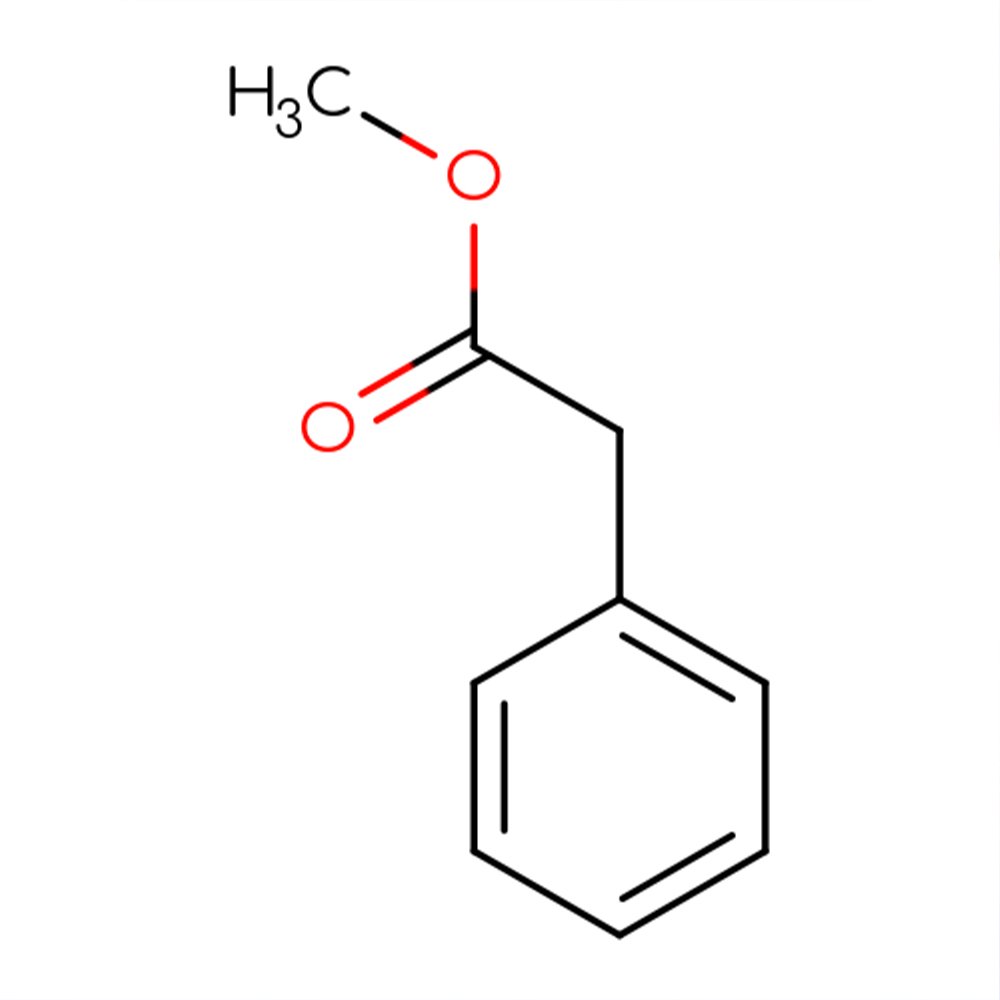Phenylethyl Acetate
Premium Synthetic Ingredient for Perfumery
Phenylethyl Acetate is a synthetic ester derived from the reaction of phenylethyl alcohol and acetic acid, offering a sweet, rosy-fruity and honey-like scent with peach and raspberry nuances. It occurs naturally in trace amounts in various fruits and fermented products but is commercially produced for perfumery and flavor use. With moderate odor strength and soft, balsamic depth in refined grades, this ingredient serves as a versatile floral-fruity modifier, especially in rose, hyacinth, and peony compositions.
Premium Synthetic Ingredient for Perfumery
Phenylethyl Acetate is a synthetic ester derived from the reaction of phenylethyl alcohol and acetic acid, offering a sweet, rosy-fruity and honey-like scent with peach and raspberry nuances. It occurs naturally in trace amounts in various fruits and fermented products but is commercially produced for perfumery and flavor use. With moderate odor strength and soft, balsamic depth in refined grades, this ingredient serves as a versatile floral-fruity modifier, especially in rose, hyacinth, and peony compositions.
Premium Synthetic Ingredient for Perfumery
Phenylethyl Acetate is a synthetic ester derived from the reaction of phenylethyl alcohol and acetic acid, offering a sweet, rosy-fruity and honey-like scent with peach and raspberry nuances. It occurs naturally in trace amounts in various fruits and fermented products but is commercially produced for perfumery and flavor use. With moderate odor strength and soft, balsamic depth in refined grades, this ingredient serves as a versatile floral-fruity modifier, especially in rose, hyacinth, and peony compositions.
Synthetic Ingredient Overview
🏭 Manufacturer: Multiple global producers
🔎 Chemical Name: 2-Phenylethyl acetate
🧪 Synonyms: Phenethyl acetate, P.E. Acetate
🧬 Chemical Formula: C₁₀H₁₂O₂
📂 CAS N°: 103-45-7
📘 FEMA: 2857
⚖️ Molecular Weight: 164.20 g/mol
📝 Odor Type: Floral–rosy, honeyed
📈 Odor Strength: Medium
👃🏼 Odor Profile: Very sweet, rosy-fruity, peach-like with honey and cacao undertone; slight green nuance; variation from sharp-pungent (technical grades) to soft-balsamic (refined grades)
👅 Flavor Profile: Sweet, floral-honey with green-nectar body; rose and raspberry-like at low ppm, perfumey at high concentration
⚗️ Uses: Floral-fruity enhancer; rose, jasmine, peony, hyacinth; flavor additive for fruit and confection profiles
🧴 Appearance: Colorless to pale yellow liquid
What is Phenylethyl Acetate?
Phenylethyl Acetate is a synthetic aromatic ester formed by direct esterification of phenylethyl alcohol (2-phenylethanol) with acetic acid or acetic anhydride. It is structurally and olfactively related to its alcohol precursor but presents a rounder, sweeter, and more honeyed profile, enhancing fruit and floral notes in a smoother, more diffusive manner.
Naturally found in small amounts in fruits such as melon, pineapple, grape, and in products like brandy, cheese, cocoa beans, and wine, it is produced synthetically for both perfumery and food flavoring.
Olfactory Profile & Perfumery Applications
👃🏼 Scent Description: Sweet and round, with rosy-floral and peach-like top notes, transitioning to honeyed, slightly green undertones. Cacao and fruity nuances emerge at higher concentrations, creating a warm, comforting drydown.
⚗️ Functional Roles:
Core floral-fruity ingredient for rose, freesia, jasmine, magnolia, hyacinth
Adds sweet lift in orientals, powdery florals, and holiday-style ("Christmas candle") accords
Provides fruit-honey effect in peach, apricot, or berry blends
Frequently used in modern aldehydic florals, fine fragrance, and functional perfumery
🧴 Recommended Dosage:
Typically used at 1–10%, but tolerates high concentrations up to 50% in base accords
Commonly paired with Citronellol, Geraniol, Coumarin, Heliotropine, or Rosetone for roundness and radiance
Industrial & Technical Uses
In addition to perfumery, Phenylethyl Acetate is widely used in:
Flavor formulations: FEMA 2857; sweet floral-honey notes in vanilla, fruit, caramel, butter, rose and tropical blends
Functional perfumery: Found in soaps, detergents, room sprays, air fresheners, and hair products
Fine fragrance: Common in florals, gourmands, fruit-florals, and soft green-fruity compositions
Regulatory & Safety Overview
IFRA: Permitted; use according to standard concentration categories
EU Allergens: Not among the 26 mandatory declarable allergens
FEMA GRAS: FEMA 2857 – approved for food flavor use under specific limits
ECHA (REACH): Registered; not classified as hazardous
Toxicology:
Low irritancy profile
Readily biodegradable
No phototoxic or CMR classification under EU CLP
Stable in formulation; may hydrolyze in aqueous systems over time
✅ Considered safe and effective for regulated use in both fragrance and flavor applications.
Sources
National Center for Biotechnology Information – PubChem CID 7654
FEMA GRAS Database (No. 2857)
ECHA Substance Information (103-45-7)
S. Arctander – Perfume and Flavor Chemicals
Fulvio Ciccolo – Ingredient Commentary, 2023


